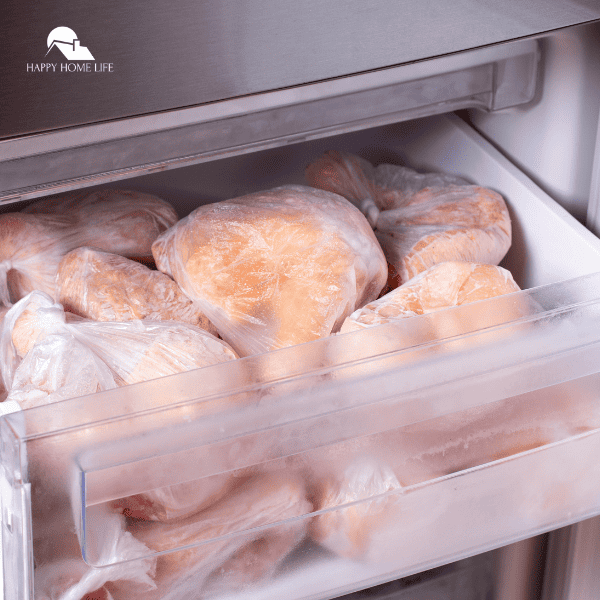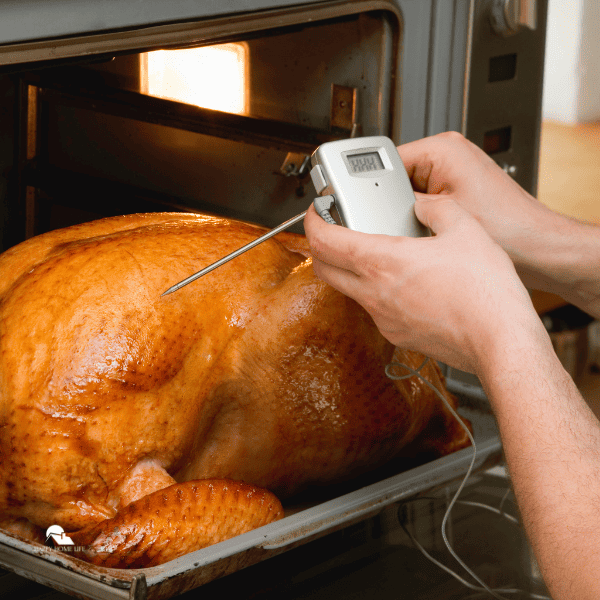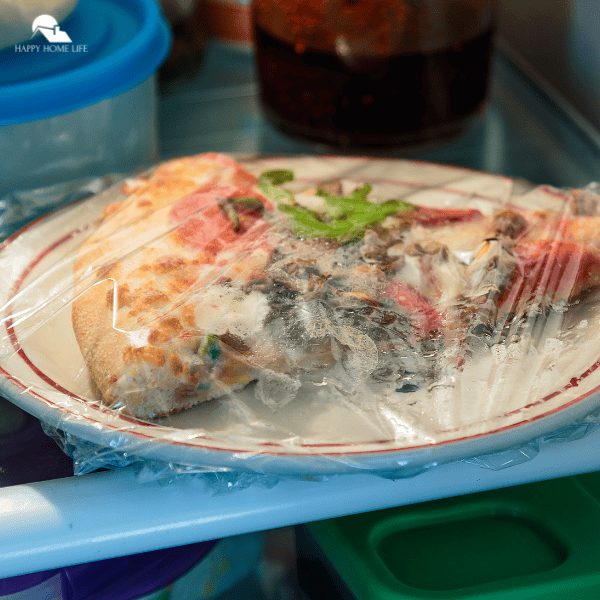Fish is a delightful and healthy source of protein that can be prepared in several tantalizing ways. However, one lingering question that might be swimming in your mind is, “How long does fish last in the fridge?“
Understanding the shelf life of fish in your fridge and other associated food safety questions is crucial to maintaining the taste of your seafood dishes and your overall health.
Let’s navigate the answer to these critical questions and further dive into other fish-related food safety topics.
Stay tuned, and let’s embark on this gastronomical voyage together!
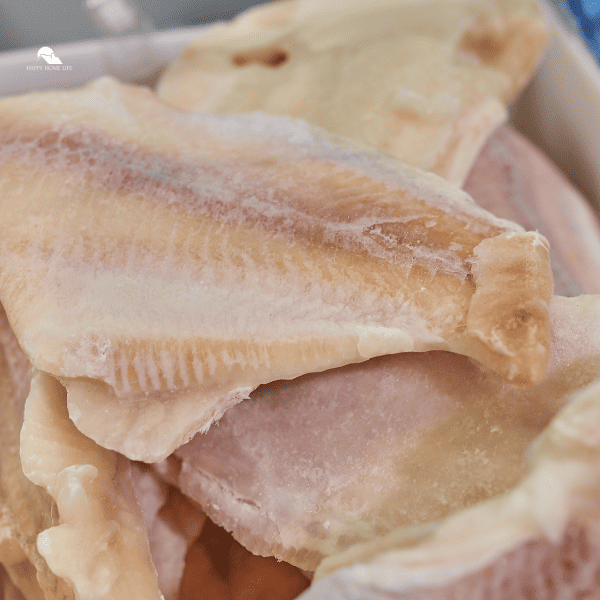
How Long Does Fish Last in the Fridge?
When it comes to storing fish in the refrigerator, understanding the proper time frames and safety measures is crucial for maintaining the fish’s quality and ensuring it’s safe to eat.
Fresh Fish: Generally, fresh fish can be kept in the refrigerator for up to two days. According to the USDA, it should ideally be stored at 40℉ or below to ensure freshness. The key signs of freshness include a mild scent and firm, slippery flesh. If the fish begins to smell fishy or feels mushy, it’s time to discard it.
Cooked Fish: Once cooked, fish can safely be stored in the refrigerator for three to four days. The cooking process extends the shelf life by reducing the number of bacteria present. Store cooked fish in an airtight container to prevent it from drying out and to keep off odors from other foods.
Smoked Salmon: Unopened packages of smoked salmon have a longer fridge life and can last for up to two weeks. However, once opened, it’s important to consume smoked salmon within a week, ensuring it’s tightly wrapped to maintain quality.
Freezing Fish for Long-Term Storage
If you won’t be consuming your fish within the recommended refrigeration times, freezing is a great option. Most types of fish can be stored in the freezer for up to three to eight months. When freezing fish, wrap it tightly in plastic wrap, foil, or freezer paper, and place it in a freezer bag to protect against freezer burn and odor transfer.
Safety First
Always remember that these guidelines are based on maintaining the optimal quality and safety of your fish. If you’re ever in doubt about the freshness of your fish, it’s better to err on the side of caution and dispose of it to avoid any potential foodborne illness.
By following these tips, you can enjoy delicious, fresh fish while ensuring your meals are safe and of the best quality. Always trust your senses—if something smells or looks off, it’s better to play it safe and not consume the fish.
Is fish good after 5 days in fridge?
According to the USDA recommendations, fish should not be kept in the refrigerator for more than 1-2 days if it is fresh. Cooked fish and other seafood can be safely stored in the refrigerator for 3 to 4 days. Therefore, it is generally not recommended to consume fish that has been stored in the fridge after 5 days. Here is a direct link to the USDA’s guidance on this matter for your reference: USDA – Leftovers and Food Safety.
How can you tell if fish has gone bad?
As mentioned earlier, the key signs of fresh fish include a mild scent and firm, slippery flesh. If the fish smells overly fishy or has a mushy texture, it’s likely gone bad and should be discarded. Other indicators of spoiled fish include discolored flesh or an ammonia-like odor. Always trust your senses when it comes to determining if fish is still safe to eat. If in doubt, it’s best to throw it out.
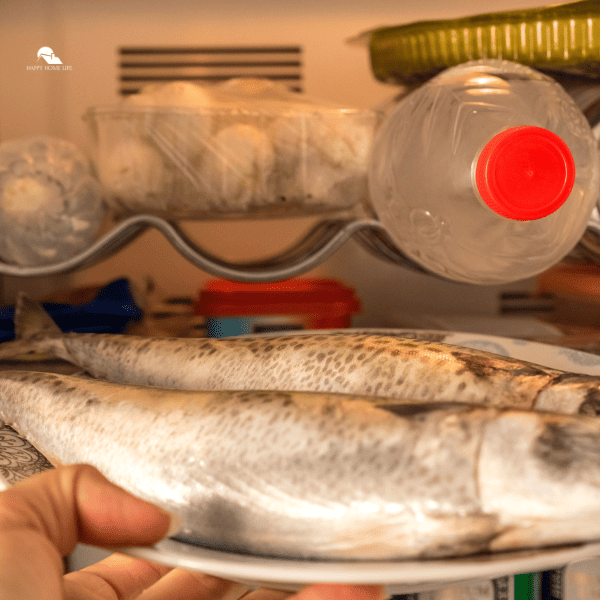
Other Fish-related Food Safety Tips
- When purchasing fish from the store, make sure it is properly refrigerated or packed on ice.
- Always thaw frozen fish in the refrigerator, not at room temperature, to prevent bacteria growth.
- Wash your hands thoroughly before and after handling raw fish.
How long is leftover fish good for?
If properly stored, leftover fish can last in your refrigerator for up to three to four days. Proper storage means the fish is placed in an airtight container, which helps prevent bacterial growth and keeps off odors from other foods. Whole fish or fillets will maintain their quality better than small pieces during this period.
However, it’s important to note that even with these measures, the fish’s quality may decrease with time. If the fish develops a strange smell or appearance, it’s best not to risk it and discard it. Always remember that food safety should be your top priority when consuming leftovers.
How long can you keep fish in the fridge before cleaning?
Several factors determine the length of time fish can stay in the fridge before cleaning. These include the type of fish, how fresh it was when purchased, and the temperature of your refrigerator. If you buy whole fish that’s extremely fresh (i.e., it was live at the time of your purchase), it could last up to two days in the fridge before cleaning.
However, for most types of fish bought from a grocery store or fish market, it’s best to clean and prepare them the same day you bring them home. While you can store raw fish in the fridge for one to two days, doing so may diminish its quality and taste.
Here is a table detailing the refrigerator storage times for different types of fish:
| Type of Fish | Recommended Refrigeration Time (Before Cleaning) |
|---|---|
| Whole Fish (extremely fresh) | Up to 2 days |
| Raw Fish (purchased from store) | Same day, 1-2 days max |
| Shellfish (e.g., shrimp, scallops) | 1-2 days |
| Smoked Fish | Up to 14 days (unopened) |
| Cooked Fish | 3-4 days |
Remember, these are estimated times, and it’s always best to prepare and consume your fish as soon as possible to ensure maximum freshness and taste.
What is the safe storage time of uncooked fish in the freezer?
The safe storage time for uncooked fish in the freezer can vary depending on the type of fish, but generally, high-fat fish like salmon can last for two to three months, while lean fish like cod or flounder can be frozen for up to six months. Before freezing, fish should be properly packaged to maintain quality and prevent freezer burn. It is recommended to tightly wrap the fish in plastic wrap or foil, and then place it in a freezer bag or airtight container.
As for cooked fish, it can be safely frozen for up to four to six months. Similar to raw fish, ensure it is properly wrapped or stored in an airtight container before freezing. However, the texture and flavor quality may diminish over time, so it’s always best to consume frozen fish as soon as possible.
Remember, these time frames are estimates and may vary depending on the condition of the fish when it was frozen and the temperature of your freezer.
Here is a quick reference table for freezer storage times of fish, both uncooked and cooked:
| Type of Fish | Freezer Storage Time (Uncooked) | Freezer Storage Time (Cooked) |
|---|---|---|
| High-fat Fish (e.g., Salmon) | 2-3 months | 4-6 months |
| Lean Fish (e.g., Cod) | Up to 6 months | 4-6 months |
In all cases, make certain that your freezer maintains a constant temperature of 0°F (-18°C) or below, the temperature recommended by the USDA for safe food storage.
Reference: USDA Freezing and Food Safety
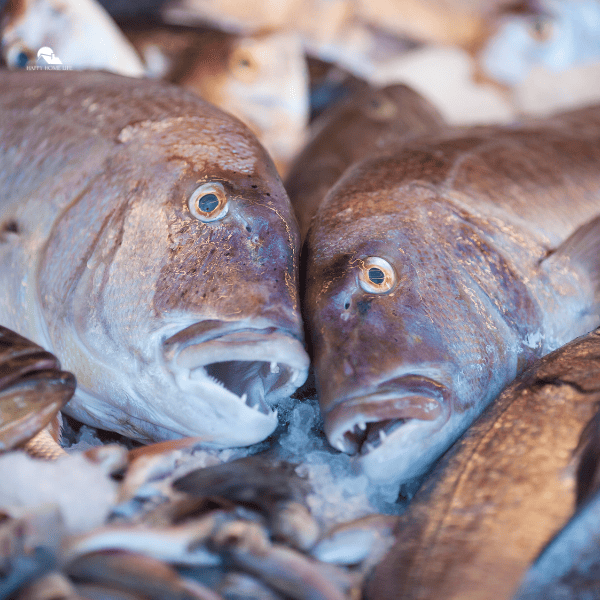
How do you store fish in the freezer for a long time?
To store fish in the freezer for a longer period, it’s important to properly package and label it before freezing. Follow these steps:
- Clean and dry the fish thoroughly.
- Wrap the fish tightly in plastic wrap or foil to prevent air and moisture from entering.
- Place the wrapped fish in a resealable freezer bag or airtight container.
- Label the package with the type of fish and the date it was frozen.
- Place the packaged fish in the coldest part of your freezer, ideally at 0°F (-18°C) or below.
- Use a paper towel or foil to separate layers of fish if you are freezing multiple pieces together.
- If properly stored, fish can be safely frozen for up to six months, depending on the type of fish.
It’s important to note that while freezing can extend the shelf life of fish, it may affect its texture and taste. Always consume frozen fish as soon as possible for maximum freshness.
How long does vacuum-sealed fish last in freezer?
Vacuum-sealed fish can last in the freezer for up to two years, according to the USDA. This is because vacuum sealing removes air and moisture, two factors contributing to food spoilage. However, it’s important to note that while vacuum sealing can significantly extend the shelf life of fish, it does not mean it will stay fresh forever. Over time, the texture and flavor of vacuum-sealed fish may still diminish.
Additionally, it’s essential to follow proper storage guidelines for vacuum-sealed fish, such as keeping them in a freezer at or below 0°F (-18°C). Remember to also label the package with the type of fish and the date it was frozen.
Vacuum sealing is an excellent option for long-term storage of fish, but it’s still best to consume the fish within a reasonable amount of time for optimal taste and quality. So, fish in the fridge can last up to two days before cleaning, while uncooked fish can be kept in the freezer for up to six months. Frozen cooked fish has a shelf life of four to six months, while vacuum-sealed fish can last for up to two years. However, it’s always best to consume fish as soon as possible for maximum freshness and taste.
Does frozen fish go bad in the freezer?
Yes, frozen fish can go bad in the freezer if it is not properly packaged and stored. Freezing only suspends bacterial growth. It does not kill bacteria. If fish is improperly packaged or stored at an incorrect temperature, bacteria can still grow and cause spoilage. It’s important to follow proper storage guidelines and consume frozen fish within a reasonable amount of time for optimal freshness and safety.
If you notice any signs of freezer burn or an off odor, it’s best to discard the fish. So, proper packaging and storage are crucial for maintaining the quality of frozen fish in the freezer. Following recommended guidelines can ensure that your fish stays safe to eat for as long as possible.
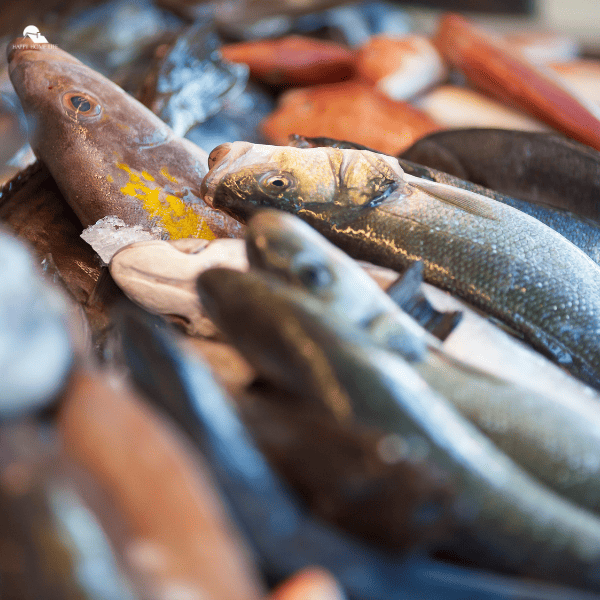
Is freezer-burn fish still good?
Freezer-burn on fish is caused by dehydration and oxidation due to air reaching the food’s surface. While freezer burn can affect the taste and texture of the fish, it doesn’t make the fish unsafe to eat. According to the Food Safety and Inspection Service (FSIS) of the USDA, consuming freezer-burned food, including fish, is safe if you remove the dried portions before cooking.
However, the quality may be compromised, as the affected areas might be dry and lack flavor. Any non-freezer-burned parts should still retain their quality. To prevent freezer burn, make sure to wrap the fish properly in freezer-safe materials and remove as much air as possible from the packaging.
How long can fish stay in the fridge after being frozen?
If fish has been frozen and thawed in the fridge, it can stay in the fridge for up to two days before cooking. After that, it’s recommended to cook and consume the fish immediately or discard it. It’s best not to refreeze previously frozen fish after thawing as this can affect its quality and increase the risk of bacterial growth.
It’s essential to handle fish safely to prevent foodborne illness. Always thaw fish in the fridge, never on the counter or in warm water, and make sure to cook it to a safe internal temperature of at least 145°F (63°C) before consuming. Proper handling and storage can ensure your fish stays fresh, flavorful, and safe to eat. So, make sure to follow these guidelines to get the maximum shelf life out of fish in the fridge and freezer.
Can I cook the fish I had in my fridge 4 days?
It is generally not recommended to cook fish that has been in the fridge for four days. According to the USDA, cooked fish can be safely stored in the fridge for up to four days before it should be discarded. This time frame is based on proper storage and handling of the fish.
If you are unsure about the freshness of your fish, it’s best to err on the side of caution and discard it. Consuming fish that is past its recommended storage time can increase the risk of foodborne illness. It’s always best to follow recommended guidelines for safe handling, storage, and consumption of fish to ensure your safety and enjoyment. So, when in doubt, throw it out! Overall, proper storage and handling are crucial for maintaining the quality and safety of fish in the fridge and freezer.
Is thawing frozen fish in the refrigerator the safest?
Yes, thawing frozen fish in the refrigerator is considered the safest method because it keeps the fish at a consistent, safe temperature (below 40°F or 4°C). According to the USDA, this method of slow thawing in the refrigerator reduces the risk of bacterial growth that can occur at warmer temperatures. To thaw fish properly in the refrigerator, plan ahead, as it can take up to 24 hours for a large fillet or package. Once the fish is completely thawed, it should be cooked within 1-2 days for maximum freshness and safety.
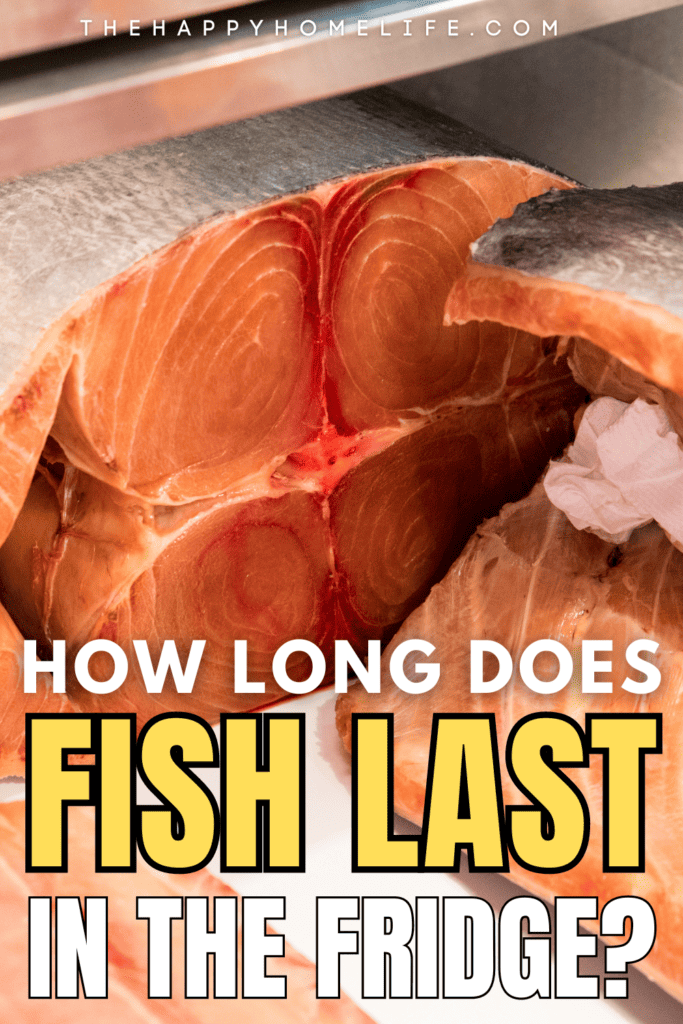
Can you refrigerate fish after cooking?
Yes, you can refrigerate fish after cooking. According to the USDA, cooked fish can be safely stored in the refrigerator for up to four days before it should be consumed or discarded. However, it’s essential to handle and store cooked fish properly to prevent bacterial growth and maintain its quality. Make sure to cool cooked fish quickly and store it in an airtight container in the fridge.
It is crucial to handle and store fish properly, whether it’s in the fridge or freezer, to ensure its quality, taste, and safety. Remember, fresh fish can be stored in the fridge for up to two days, while frozen fish can last in the freezer for several months, depending on the packaging method. Thawing should always be done in the refrigerator to reduce the risk of bacterial growth. Once cooked, fish can be safely stored in the fridge for up to four days. However, when it comes to fish in the fridge, or any food, if in doubt, it’s safer to throw it out.
Proper storage and handling of fish are not merely about prolonging its shelf-life but also about maintaining its taste and most importantly, ensuring your safety. Always adhere to these guidelines to enjoy your seafood dishes worry-free.


